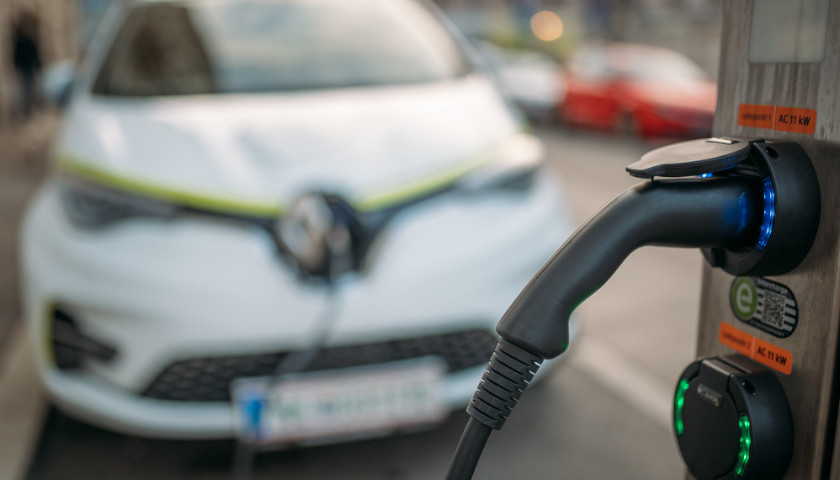The Australian-based Tritium DCFC, which manufactures fast chargers for electric vehicles, announced plans to open a new manufacturing facility in Lebanon, Tennessee.
“The location is expected to house up to six production lines for Tritium’s DC fast chargers, including the company’s award-winning RTM and all-new PKM150 models,” according to a statement on the company’s website.
“The new facility is also anticipated to bring more than 500 jobs to the region over the next five years. All chargers produced at the facility are expected to comply with applicable Buy America Act provisions under Federal Highway Administration (FHWA) requirements for domestic sourcing.”
Officials with the Lebanon/Wilson County Chamber of Commerce declined to comment and referred The Tennessee Star to Lebanon Mayor Rick Bell’s office.
Members of Bell’s office did not respond to The Star’s request for comment before Wednesday’s stated deadline.
Production is expected to start at the Tennessee facility sometime in the third quarter of 2022.
Tritium designs and manufactures proprietary hardware and software to create DC fast chargers for electric vehicles.
The Infrastructure Investment and Jobs Act is expected to provide $7.5 billion of taxpayer money for a network of 500,000 EV chargers along highway corridors in the United States.
Certain electric vehicles emit 11 percent to 28 percent more carbon dioxide than their diesel counterparts. This even though various U.S. politicians, including former U.S. Senator Lamar Alexander of Tennessee, want taxpayer subsidies for such cars.
According to a 2019 article on the Institute for Energy Research’s website, a study out of Germany found that electric vehicles in that country emit more carbon dioxide.
The study considered the production of batteries as well as the German electricity mix in making this determination.
But it’s not just electric cars in Germany.
“A study in 2017 by researchers at the University of Michigan found that the amount of carbon dioxide emitted by electric cars varied wildly by country,” according to the Institute for Energy Research’s website.
“The study found that an electric car recharged by a coal-fired plant produces as much carbon dioxide as a gasoline-powered car that gets 29 miles per gallon, which is a slightly higher efficiency than the 25.2 miles per gallon that is the average of all the cars, SUVs, vans, and light trucks sold in the United States over the past year. If the electricity comes from a natural gas plant, recharging a plug-in electric vehicle is akin to driving a car that gets 58 miles per gallon.”
The authors also said “lawmakers should be cautious about subsidizing electric vehicles when their electricity is generated mainly by fossil fuels because they are not lowering the carbon dioxide emissions from automobiles by doing so.”
In 2018, The Daily Caller reported EVs aren’t popular and only people with six-figure incomes generally have them.
– – –
Chris Butler is an investigative journalist at The Tennessee Star and The Georgia Star News. Follow Chris on Facebook, Twitter, Parler, and GETTR. Email tips to [email protected].
Photo “Electric Vehicle Charging Station” by Ivan Radic. CC BY 2.0.








